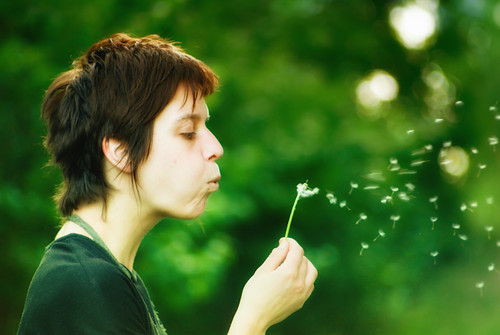 Sometime ago, I was in a meeting where one of the engineers asked the sales manager whether there was an update from a prospective customer. This question of curiosity was met with ferocious opposition as the sales manager launched into a tirade about how we’re not just going to go after any customer but we’re going to be more selective. Woah! What just happened there?
Sometime ago, I was in a meeting where one of the engineers asked the sales manager whether there was an update from a prospective customer. This question of curiosity was met with ferocious opposition as the sales manager launched into a tirade about how we’re not just going to go after any customer but we’re going to be more selective. Woah! What just happened there?
We’ve all experienced this kind of overreaction. One person asks a fairly innocuous question or makes a bland statement and another person goes ballistic, typically followed by a downward spiral of reduced discourse and higher volume. We’ve just experienced the relational equivalent to allergies.
If we breath in some foreign pollen that our body thinks is trying to kill us, it responds strongly — we’re under attack! Defend! Defend!! This is not a healthy response nor does it actually prevent death by pollen (sometimes it even causes it!). But allergies aren’t caused by a single dose of the ‘toxin’ but rather get stronger through repeated doses.
And this is what happens in any close relationship — families, spouses, work colleagues, partners, management teams, friends. Over time, patterns of communication are built up, so while a stranger hears an innocuous question, we hear a conversation we’ve had before and didn’t like where it ended up, so we respond as though the conversation were already at that end in hopes of stemming the tide. Defend! Defend!!!
Unfortunately, just like allergies, this just causes more pain rather than improving our situation. Moreover, just like allergies it can be difficult to stop. It’s pretty easy to see the allergic reactions of others. We ask an innocent question trying to understand, and the other person gets angry. What was that about? But it’s super hard to see our own silly reactions. Why? Because our allergic reaction seems like the obvious response. We emotionally replay the conversations of the past and so it seems like they are intentionally provoking us. It only makes sense that we respond this way to such an obvious attack.
But it isn’t and we shouldn’t.
So I’ve started thinking about what the best antihistamine to human allergies — how do we calm our own reactions and how can we help others? One question that seems to help is to see if the response makes sense if a total stranger asked the question or made the statement. As I later asked our sales manager, “Hey, if I asked this question, you wouldn’t have tried to lecture me about customer choice. You would have just told me the answer. What’s going on there?” I think we can ask ourselves this same question — would we respond the same to a stranger? If not, what’s going on there?
We can also stop the cycle. Human relational allergies are worse than environmental ones because with humans the ‘pollen’ has an allergic reaction too. We ask a question, the other party gets angry, so we get angry with them and overreact, causing them to double down. All of us have experienced this. None of us have walked away feeling good about the resulting exchange.
Uncontrolled allergies breakdown what could be extremely deep and valuable conversations. They cause us to fake relationships rather than have real ones because it’s the relationships that are the deepest and most meaningful that often have the most allergic responses.
[Photo Credit: ![]() Jon Díez Supat]
Jon Díez Supat]
Leave a Reply